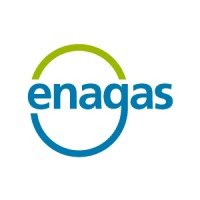UAE tests ammonia delivery to Germany
The pilot delivery sets an important milestone for the medium-term imports of green hydrogen for Germany and Europe.

The first low-carbon ammonia test shipment from the United Arab Emirates (UAE) to Germany was completed with its arrival at multi-metal manufacturer Aurubis.
As a leading European logistics group with strong ambitions to drive forward decarbonisation, Hamburger Hafen und Logistik AG (HHLA) handled the test cargo at the climate-neutral Container Terminal Altenwerder in Hamburg.
In March 2022, HHLA signed an agreement with Abu Dhabi National Oil Company (ADNOC) to test the transport chain for hydrogen from the UAE to Germany. The hydrogen supplied by ADNOC was shipped in the form of the hydrogen derivative ammonia. In September, the first container arrived on a Hapag-Lloyd vessel at the Port of Hamburg and was handled climate-neutrally at HHLA Container Terminal Altenwerder.
With its seaport terminals, rail connections and intermodal hub terminals across Europe HHLA can ensure the safe import and smooth onward transport of hydrogen and its derivatives.
The ammonia of the first test cargo will be used by the Hamburg-based company Aurubis for test runs for the climate-neutral conversion of gas-intensive copper wire production, thus replacing fossil fuel in the long term. In the next months, more test deliveries of low-carbon ammonia will be shipped to other customers in Germany.
Two years ago, HHLA launched the project HHLA Hydrogen Network to identify the potential of hydrogen in its own business segments and beyond. Hydrogen as an energy carrier can contribute significantly to the decarbonisation of logistics.
Torben Seebold, a Member of the Executive Board of HHLA, said, “We at HHLA are very proud to be part of the joint, successful development of a secure supply chain for hydrogen carriers from the United Arab Emirates to Germany.”
